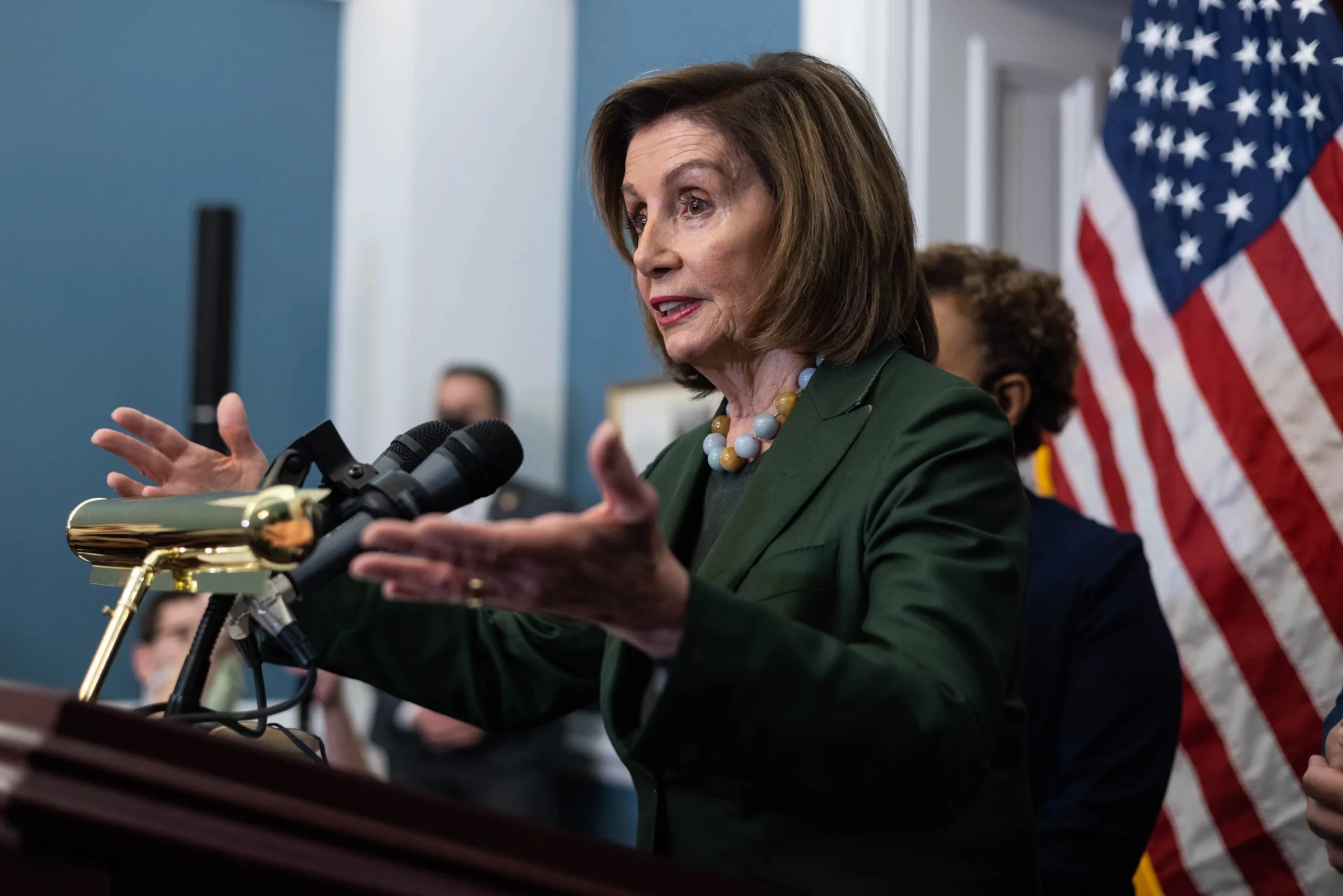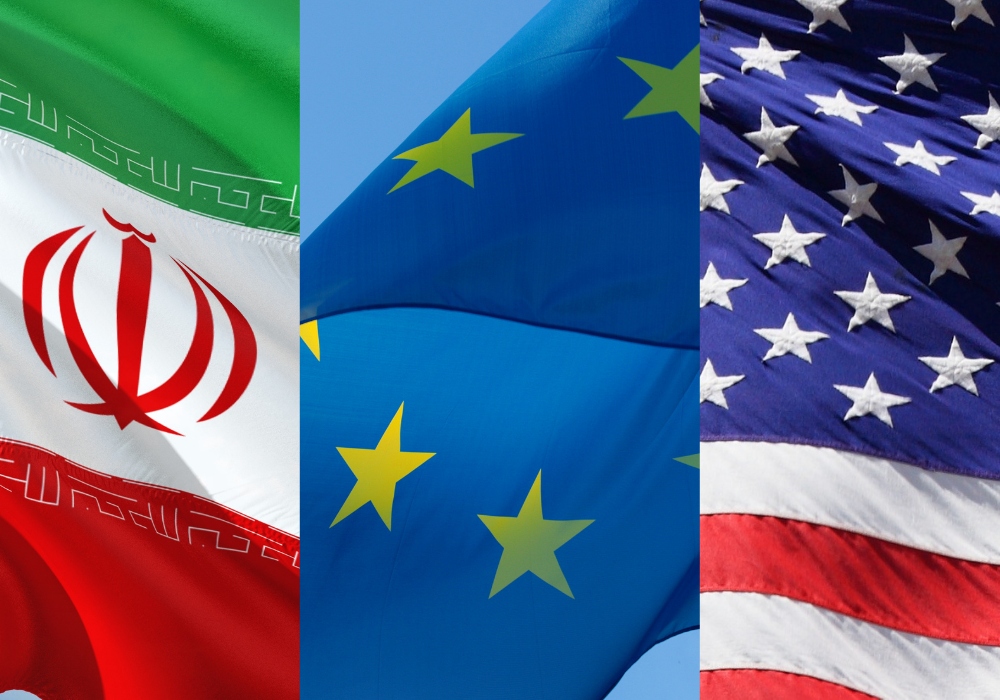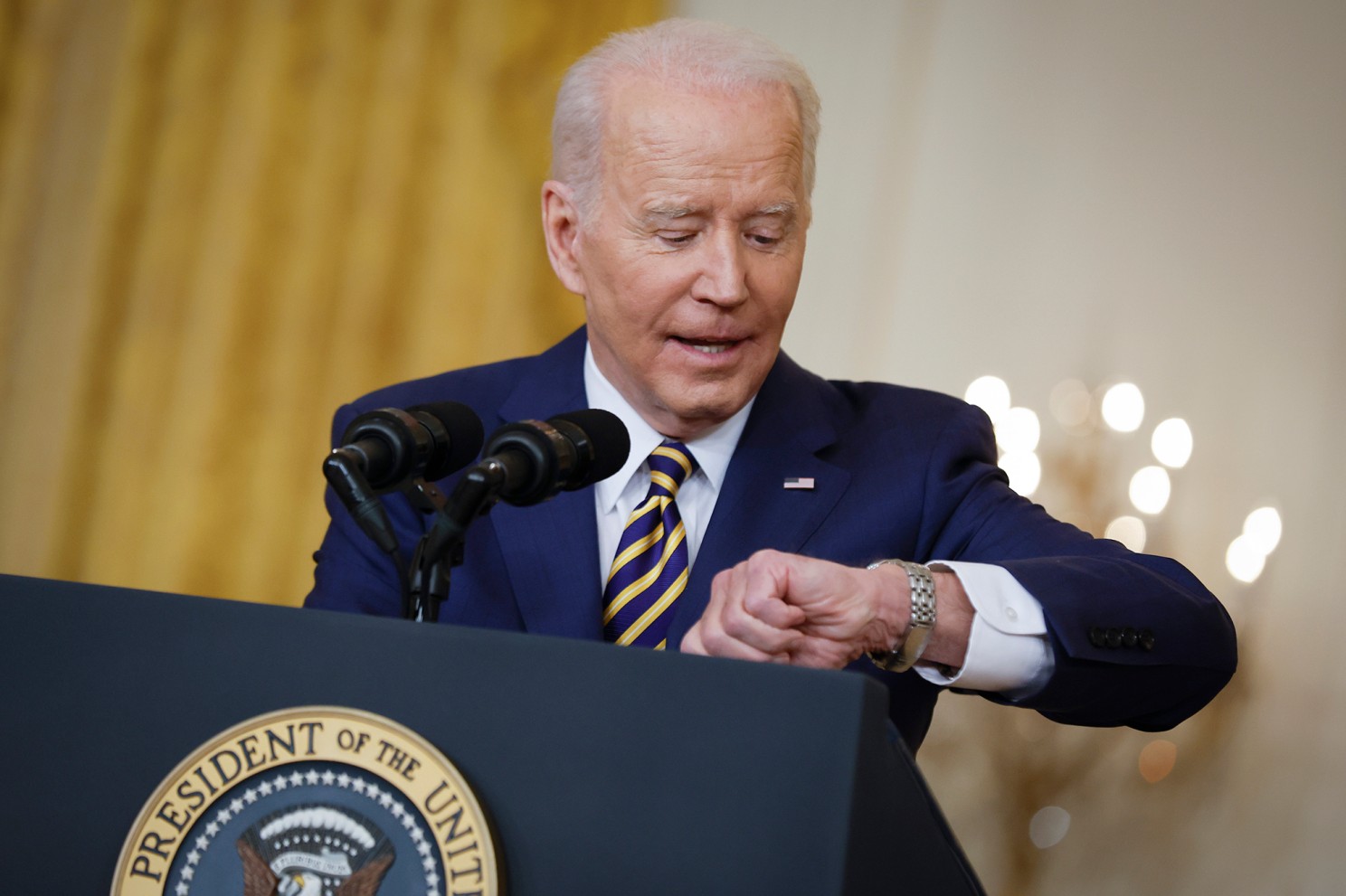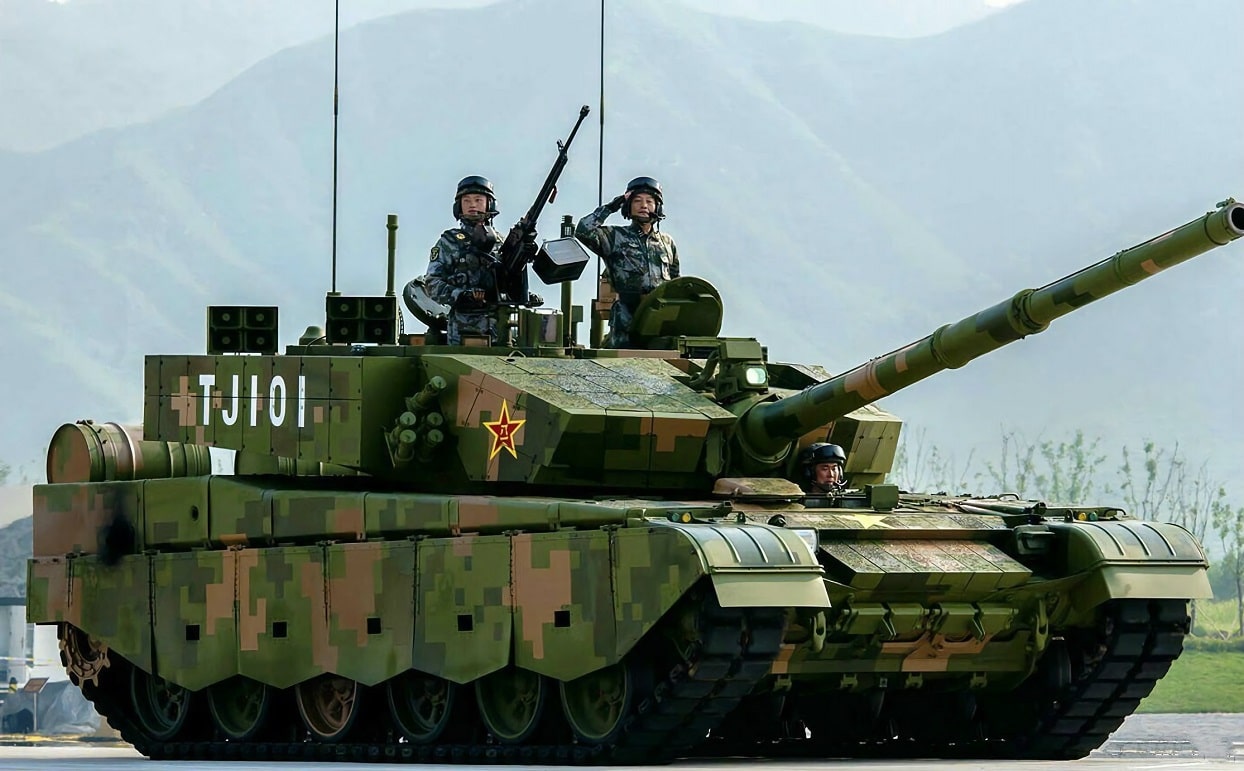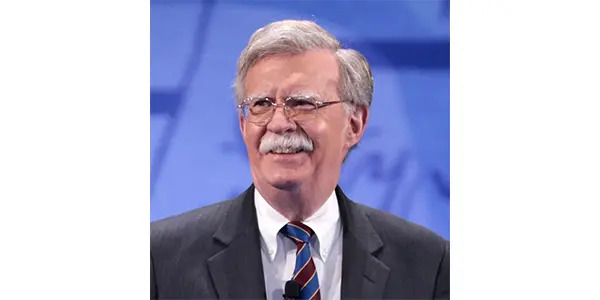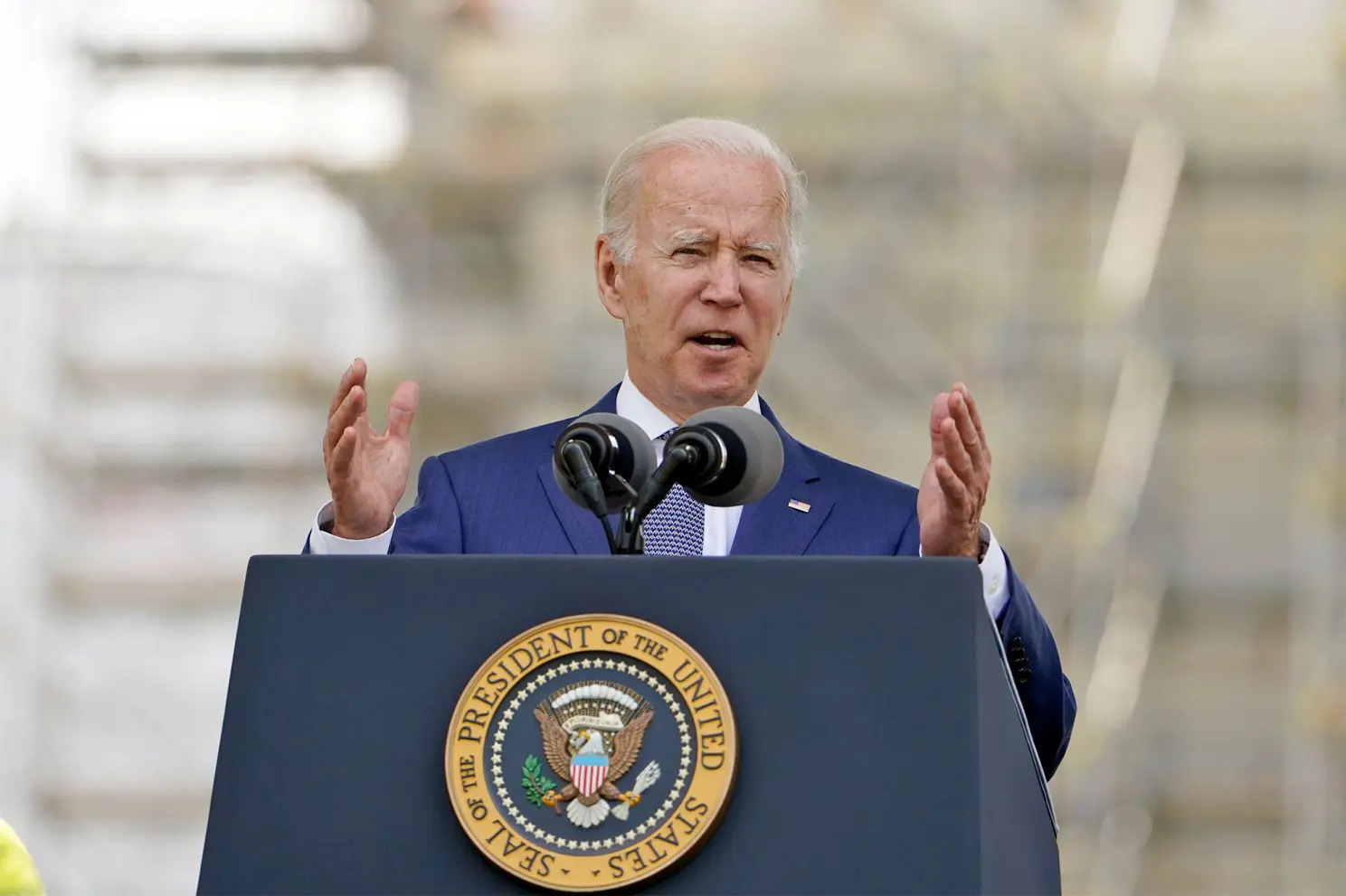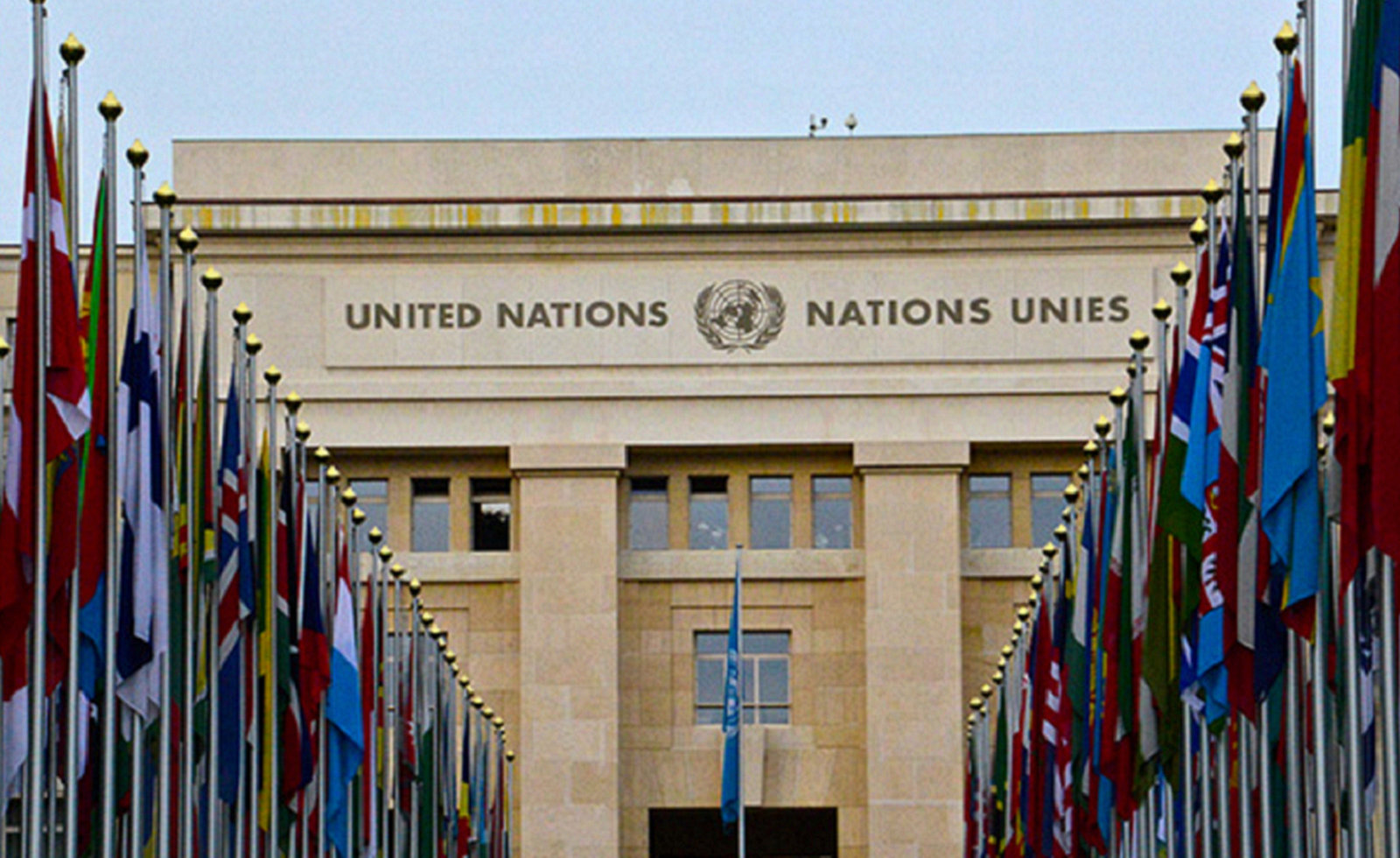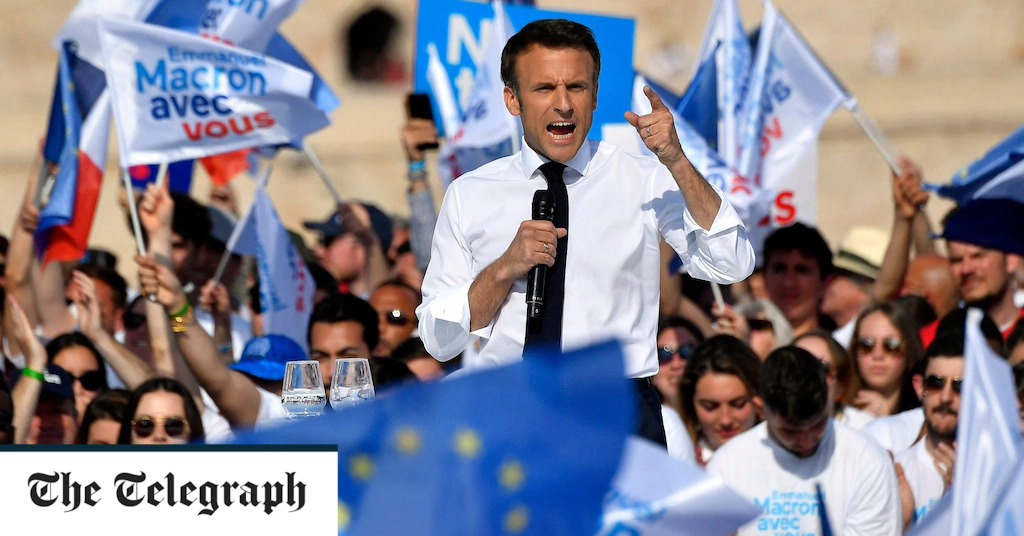Part II: Reactions to Jordan’s incitement
By David Wurmser
In part one of this essay, I described the harsh and increasingly hostile anti-Israeli and anti-Semitic rhetoric recently employed by Amman, but also its attempts to champion the Palestinian cause and wrest sovereignty from Israel on the Temple Mount, if not all holy sites in Jerusalem into a some sort of “Vatican-like” status. I also outlined the accompanying geopolitical shifts that echo Russian and Non-Aligned Movement narratives.
In this second installment, I will examine the reactions in the West and in Israel to this turn of events, which essentially break down into three types:
- Those whose patience is stressed to the limit with Jordan at such a sensitive moment and who advocate ignoring Amman’s demands when they are perceived to come at such an expense of Israeli interests that they threaten the essence of Israeli continued control over either Jerusalem or critical areas of Judea and Samaria.
- Those who argue that Jordan is acting over the top unjustifiably, but that the larger interests and continued cooperation between Israel and Jordan remain so important that very narrow Israeli interests save but a few truly vital ones should transcend the imperative of maintaining the peace treaty and trying to keep Israeli-Jordanian relations on an even keel.
- Those who argue that Israel has only itself to blame and that Jordan is simply reacting to Israel’s failure to satiate Palestinian demands, thereby “weakening” the Palestinian Authority(PA) which puts Amman in an impossible position wherein they have no choice other than to champion the PA.
In other words, should the reaction be to reject, excuse (but not necessarily accept), or appease Jordan’s demands?
Reject Amman’s demands
In 1967, Shai Agnon, as he received the Nobel Prize for literature, ascended the podium in Oslo, Norway and spoke:
“I tell you who I am. From the midst of a historical catastrophe, when Titus the King of Rome put Jerusalem to the sword and exiled Israel from its land, born I was in one of the cities of the Diaspora. Mourning was every moment. But I imagined myself as one who himself was born in Jerusalem. In dreams, and in night visions, I saw myself standing with my Levite brothers in the Temple, as I sing with them songs of David, King of Israel. On account of Jerusalem, I have written everything that G-d has given me in my heart and in my pen to write.”1
In this, the great writer was no innovator, but a link in a long chain, from singing on the rivers of Babylon in the Bible, to the haunting song (“Jerusalem of Gold”) of Naomi Shemer, sung by Shuli Nathan, on the terrifying eve of the Six Day War, when Israel’s rapid victory was still in the future and the very real prospect of another catastrophic destruction of the Jewish people was descending.
It was a tradition of hope, moored to the mystical attachment to Mount Moriah, the Temple Mount, the Western Wall or whatever other name it carried, that focused on that one place, the one site on the globe, that allowed every Jew personally to look beyond the moment of hopelessness to redemption.
As Rabbi Soloveichik has noted, the irreconcilable mourning over the loss of Jerusalem two millennia ago, mixed with the uncompromising, indeed unquestioned hope driven by the certainty of return (reinforced by the idea that the destruction and exile followed by redemption and return had happened once before 2500 years ago), animated each generation of Jews to not only push on and survive but to harbor an impossible sense of hope and optimism. As Soloveichik noted, this quite possibly could be seen by a modern psychiatrist as a form of insanity, but it was what drove every Jew in his darkest moments to persevere.2
The essence was perhaps best expressed not through the words of the lofty intellectual, but through the eyes of a simple 19-year old Jewish teenager who grew up in a community isolated for millennia in Ethiopia which had left Israel in the first exile and had not even heard yet of the destruction of the Temple by Titus and the Roman legions. For her, as she plodded her way with the rest of her community on foot over a thousand miles in a march through the desert which many never survived led by Israeli agents to a collection point where quietly at night they were spirited out to Israel, their desperate journey was not driven by some modern idea of self-determination, but by a primordial cry of the soul. As she said, translated and cited by Rabbi Soloveichik:
“Until the age of 19, I grew up in a world in which the Beit Hamiqdash – the Holy Temple in Jerusalem – actually existed. I grew up hearing about the Kohanim – Holy Priests – and how they worked in the Temple. I fell asleep listening to the stories about the halo hovering over Jerusalem…We prayed and performed customs that expressed our yearning for Zion. We struggle to keep going despite the terrible conditions…because of our goal to reach Jerusalem of Gold, and after so many generations to stand at the gates of the Holy Temple.”3
Although there are some Israelis, like Amos Oz, who scoff at this spiritual attachment, the vast majority of Israelis – indeed Jews — believe the idea of return to Jerusalem itself – and by that was meant the Temple Mount, not some modern suburb – both spiritual and concrete was the irrepressible force upholding the beleaguered soul of the Jewish people. The epicenter of Jewish existence and survival is, thus, the Temple Mount.
In this context, Jordan’s statements in recent crises denigrating the right of the Jewish people to have any presence or standing on the Temple Mount, obliterating verbally any connection of the Jewish people to that site, strikes not only an emotive and painful chord among many Jews, but is deeply offensive and deserves an angry response. To many, thus, no modern power, monarch or idea or even superpower stands strongly enough to compete with four thousand years of Jewish history, belief, survival, hope, imagination, attachment – and ultimately essence — to the place because compromise on this is a betrayal of the legacy of about two hundred generations and an action tantamount to suicide. As poet Uri Zvi Greenberg (1896-1981) wrote: “Whoever rules the Temple Mount, rules the Land of Israel.”
Indeed, even the annual flag march through Jerusalem and its gates, while described almost universally in the Western press as a modern, indeed very recent jingoist provocation, is in fact an evolution of a ritual of longing conducted for perhaps a thousand years. As Talmudic scholar, Jeffrey Woolf of Bar Ilan University noted:
“There is a very long-standing tradition for hundreds of years, perhaps for millennia, of walking around and encountering the various gates of Jerusalem and expressing one’s love for Jerusalem. People would come from all over the world on pilgrimage, walk and say prayers at every single gate. And they would [similarly] walk around the gates of the Temple Mount.”4
And thus, if forced to choose between continued peace with Jordan and the convenience – or even survival — of King Abdallah, many, indeed most Israelis see it as obvious that they, as the roughly two hundred generations before, really can only choose their attachment to Jerusalem over their own or the Jordanian King’s convenience.
The answer of Prime Minister Bennett — though leading a left-leaning coalition with an Arab party in it (led by Mansour Abbas) and another Arab Party (Ayman Oudeh) outside it providing the buffer votes to allow it to continue – can only be understood in this context. Accusing Jordan of “backing those who resort to violence,”5 Bennett said also:
“There is no change or new evolution in the status on the Temple Mount – Israel’s sovereignty is preserved. All decisions on the Temple Mount will be made by the government of Israel from the context of our sovereignty, freedom of religion and security, and not as a result of pressures from foreign powers or political forces.”6
The last phrase is a direct rebuke of Jordan’s demands. Nor was this just PM Bennett. Even Israel’s left-leaning foreign minister, Yair Lapid, was reportedly so angered by the fact that the Jordanian government was seen as fueling rather than calming the tensions, that he considered a much sharper response and course of action against Jordan during the heat of the unrest in April.7
In essence, as one political commentator epitomized, the thought is growing in Israel that:
“Beware King Abdullah’s scheming in and around Jerusalem. The Hashemite Kingdom may be an important partner for Israel in maintaining stability along Israel’s longest border, and an ally in the fight against Iranian hegemonic ambitions…But Abdullah today is proving to be a foe in the struggle over Jerusalem, willing to employ historical falsifications, radical rhetoric, and shameless diplomatic guile to undermine Israeli rights at the holiest place on earth to the Jewish people. And he takes on this task with hands that are not at all clean.”8
In other words, the more Jordan sides with the Palestinians against Israel, especially on the issue of the Temple Mount, the less use, and thus tolerance, there is among many Israelis of the King’s demands.
Excusing and indulging Jordan
There are many analysts, unrivaled in their understanding of Jordan, who countenance patience with Amman, especially in the context of these internal threats. This line of thinking is perhaps closest to the traditional way in which Israeli-Jordanian relations have been understood since the 1960s, or possible even earlier.
At its core is the belief that Jordan serves several critical strategic functions:
- It helps Israel manage the Palestinian population and helps obstruct the rise of radical militia that could challenge both Israel and the Hashemite King.
- It provides a stable eastern border.
- It prevents the dangerous politics of the Persian Gulf access to Israel’s center (as for example Syria has failed to do regarding Israel’s north).
- It provides a cooperative structure to Israel to manage and administer sensitive Islamic sites and assets in Jerusalem.
The difficulty of Jordan’s position, its inability to digest instability emerging from the Palestinian issue and its serving as a buffer against other very aggressive and dangerous regional forces and nations, is both well understood and considered. As such, there is quite a bit of elasticity in understanding, indeed tolerance, in this camp that Amman is unwillingly forced to take actions and make statements at Israel’s expense. While such statements may grate many Israelis, they argue, one must consider the cause and the alternative. Indulging Amman’s rhetoric is a small price to pay for a continued, stable and highly strategic partner across the Jordan River.
The best formulation of this argument came from Robert Satloff, whose long years of refining his expertise on Jordan demand serious consideration:
“…Despite – or perhaps because of – the much more open royal embrace of Israel than in years past, …popular opinion – such as it is – was looking for an excuse to lash out. This is manifested in the 82 out of 109 MPs chomping at the bit to score a political point by urging [the] government to expel the Israeli ambassador, an act which could have triggered terrible downward spiral in this vital relationship. In this moment came the provocative comments by the Jordanian PM … not unreasonably interpreted as celebrating those actions of the Palestinians bent on stroking tensions and promoting confrontation. Problematic as his words may have been, my assessment is counter-intuitive – i.e., that his remarks were designed to get ahead of the parliamentary mob in an effort to defuse that explosive moment and ultimately protect the fundamentals of the Jordan-Israel relationship.”9
This is probably the most astute and accurate analysis of what is motivating the Jordanian leadership, none of whom have ever shown any particular penchant for wanton Israel-bashing. In the context of this outlook, one is hard pressed not to feel some sympathy for the Jordanian leadership in navigating its despair.
The security and diplomatic establishments in Israel, as well as some Jewish journals also advocate such a response, which is indeed very close to the traditional half-century paradigm of Israeli-Jordanian relations (long predating the codification in the 1994 peace treaty) and the spirit behind the strategic and security cooperation clauses of the peace treaty.
So, it was little surprise that just before the violence during Ramadan broke out, but after the wave of terror against Israel began, a series of high-level Israeli leaders traveled in a concentrated effort to Amman to enlist Jordan’s help in calming the situation, as has always been done to good effect until recently. One Israeli paper on March 30 noted the bewildering pace of Israeli travel to Amman in this context:
“Israel has pushed closer to Jordan in a massive effort to prevent an outbreak of Israeli-Palestinian violence next month that could destabilize both countries. President Isaac Herzog is set to make the first-ever “public and official” visit to Jordan, either by himself or by any of his predecessors since the country’s founding in 1948, …[to] discuss “deepening Israeli-Jordanian relations, maintaining regional stability with an emphasis on the upcoming holiday period, strengthening peace and normalization, and the many latent opportunities in relations between Israel, Jordan and the wider region … Herzog will meet with Abdullah in his palace, just one day after Defense Minister Benny Gantz visited and a week after Public Security Minister Omer Bar Lev was in Jordan to meet with the country’s Foreign Minister Ayman Safadi. Both countries understand that should security ties fail, not only will the king face instability at home, but the Jordanian street violence could spill over the border to Israel.”10
So as to put emphasis on this point, the Russian withdrawal from Syria resulting from Russia’s redirecting its efforts as a result of the Ukraine war has left a vacuum which is being filled by Iran, placing the IRGC and other Iranian terrorists not only closer to Israel’s border, but also along Jordan’s border. In the last weeks, this presence has begun to turn into terrorist operations against Jordan, about which King Abdallah said:
“We want everybody to be part of a new Middle East and to move forward, but we do have security challenges. We’re seeing border attacks on a regular basis and we know who’s behind that… Unfortunately we’re looking at maybe an escalation of problems on our borders,”11
The King later was more specific:
“That vacuum [left by the Russians] will be filled by the Iranians and their proxies..”12
Jordan’s role as a buffer to the Persian Gulf state system remains a vital Israeli as well as Saudi and US concern.
The violence in Jerusalem, and Jordan’s apparent encouragement of it, in the weeks following the rapid succession of visits by President Herzog, Defense Minister Gantz and Internal Security Minister Bar-Lev have placed the paradigm informing this effort under great stress. And to be sure, those who argue that Jordan should be indulged do not deny that Jordan is behaving inappropriately and provocatively, nor do they necessarily embrace the idea of Israel’s conceding to Jordan on Israel’s sovereignty over the Temple Mount. They simply argue that Israel must not give in to frustration and should instead keep its eye on the larger picture. Is the assertion of Israeli pique and the insistence on the application of its rights fully, they ask, worth jeopardizing the peace treaty, if not even Jordan’s survival, in the larger geo-strategic context? And is not Israel’s power and societal strength so solid that it can digest this indulgence?
As such, the conclusion is to counsel Israel to exercise strategic patience and work through the “noise,” to just digest the rhetoric or react moderately with measured response, and to some extent tred lightly in engaging in any further actions that could enflame the circumstance.
This argument is essentially an appeal to uphold the paradigm of Israeli-Jordanian relations reigning for the last six decades at least.
Appeasing and leveraging Jordan’s demands
Those far less sympathetic to Israel seek to exploit Jordan’s weakness and despair, and the threat of collapse, as leverage to further pressure Israel into concessions on the Palestinian track. Sadly, at this point, it is likely the US government under the Biden administration falls into this category.
In contrast to the argument made by those who are sympathetic to Israel who believe it is precisely Israeli strength that unlocks the potential for peace and allows Israel latitude of action,13 the Obama administration and indeed President Obama himself – the intellectual forerunner of the current administration – appears to have reversed that concept into policy a decade ago (August 2014) and argued that the central obstacle to peace is Israel’s failure to be more flexible, which is in essence a result of Israel’s immense power and consolidation which tempers its eagerness for peace.14 In other words, Israel is too strong to want peace.
Thus, the path to peace would necessitate some weakening of Israel not as a consequence of, but as a prerequisite for, achieving peace.
For this community of policymakers and opinion-setters, the exploitation of Jordan’s despair and the benefits provided by Israel’s central seven-decade long interest in maintaining Jordan’s survival and in a state of peace are highly useful assets into which to tap and to leverage to force Jerusalem to concede.
As such, the answer of this latter crowd is to demand rather than suggest Israel’s indulgence of Jordan’s hostility, as well as to cede sovereignty in part or in whole. In fact, Jordan’s hostility ultimately is understood as being a result of Israel’s failure to advance an attainable peace because of its intransigence and ultimately lack of interest in peace. In other words the message to Israel is: “It’s your fault anyway, so deal with it.” Leveraging Amman’s despair to weaken Israel both advances peace, and through that, shores up the Jordanian regime.
In this context, it was no surprise that the White House issued a statement on April 25, 2022, that essentially sided entirely with Jordan and abandoned any pretense of support or sympathy with Israel’s situation regarding its frustration with Jordan, let alone the issue of the Temple Mount. Issued after the harshest volleys of statements from Jordan by Prime Minister Kasawneh and Foreign Minister Safadi, the White House issued the following formal communique:
“Jordan is a critical ally and force for stability in the Middle East, and the President confirmed unwavering U.S. support for Jordan and His Majesty’s leadership… The President affirmed his strong support for a two-state solution to the Israeli-Palestinian conflict and cited the need to preserve the historic status quo at the Haram al-Sharif/Temple Mount. The President also recognized the Hashemite Kingdom of Jordan’s crucial role as the custodian of Muslim holy places in Jerusalem. The leaders discussed the political and economic benefits of further regional integration in infrastructure, energy, water, and climate projects, with Jordan a critical hub for such cooperation and investment.”15
Apart from completely ignoring Jordan’s role in fanning the flames of tension in the preceding weeks, the communique represents a shift in policy in many aspects and is a loaded statement full of coded language:
- It recognizes Jordan as the custodian of the Muslim Holy places in Jerusalem. Jordan was never “the custodian” of the holy places under any agreement. Under the peace agreement, Israel is committed to giving preferential consideration to Jordanian — as opposed to other nations’ – concerns, and in this context, gives Jordan a special status in helping Israel administer the sites, but no more. Israel never agreed with Jordan in any document to cede its ultimate sovereign control over the Temple Mount.
- The US now recognizes the Temple Mount as a whole as a Muslim Holy site, not just the al-Aqsa mosque. While Israel has allowed the Waqf a role there until now, the whole area was formally never was considered a Muslim holy site other than the al-Aqsa mosque itself.
- The “historic status quo” to which the President says the US now supports was never a term or concept until now. Indeed, the term status quo refers to the situation as it was between 1967 to now, although that has constantly evolved, mostly to the detriment of Jews and Christians. Jordan has seized on this term “historic status quo” and then proceeds to define it in its recent policy paper in the context of the deterioration of Muslim rights since the 1852 circumstance, namely full Muslim sovereignty and control over ALL holy sites. This concept was reinforced at the end of April by the foreign minister of Jordan, when he called Israel’s presence there illegal and ownership over the Temple Mount as being exclusively Palestinian.
- The White House called Jordan helpful in calming rhetoric and preventing provocations. This is an outright inversion of truth. Jordan has not been helpful at all, and in fact, it has been one of the lead inciters over the last months. Indeed, its prime minister praised rioters, condemned Israeli Arabs who work with Israeli authorities, and encouraged more rioting attacks on Israelis in Jerusalem. One does not need to humiliate Jordan in such a communique by criticizing King Abdallah during his visit, but praising Jordan as a partner in fighting and calming the raging rhetoric is inverted and — since the situation is highly charged (in good part because of Jordan’s rhetoric) and such incitement has led to dozens of dead Israelis thus far — itself incendiary.
- And finally, in a completely new jab at Israel, Jordan has for several years been insisting that the resources of the entire Palestinian-Israeli-Jordanian area — including the water of the Sea of Galilee — be shared as a moral obligation. As such when Israel gives Israeli resources to Jordan under an agreement (such as sending large amounts of its precious water from the Sea of Galilee), Jordan regards it more as a payment of an owed debt or obligation by Israel rather than a willing concession. Since Jordan’s new policy sees itself now as the champion of the Palestinians and their advocate and strategic partner against Israel, Jordan also sees itself at the center of authority to properly manage the allocation of Cis-Jordanian (Israel and the Palestinian Authority) and Trans-Jordanian (Jordan) resources, and has thus arrogated to itself the controlling role of being the central hub, rather than Israel (which isn’t mentioned in this capacity), for distributing all of the resources of the area. Astonishingly, the US signed off on this concept in the last sentences of this communique.
On each point, the US echoed Jordan’s positions and distanced from Israel, ignored Israel’s interests and even showed little if any concession to Israel’s sovereignty.
Beyond these three basic outlooks, there are several other lines of thought emerging on Jordan. In particular, one should take note of an idea appearing in one of the leading periodicals published in the United States identified with the left side of the Democratic party, which outright called on Jordan to reoccupy the West Bank and make it part of Jordan.16 It is rather surprising that this argument is being made by some closely identified with Jordan since ultimately, it opens the Pandora’s box of the identity of Jordan, which is not only a Hashemite monarchy, but a state anchored to the tribal structures of the Hejaz (more on this in part III). And while those advocating this reversion to the pre-1967 situation look nostalgically on King Abdallah I’s embracing such a policy in 1950, the author conveniently ignores that Abdallah I’s moves cost him his life and nearly cost his son his throne a few years later.
At any rate, the basic question behind all these types of responses boil down to one core question: should Israel stand firm on its rights and accept come what may in Jordan, or should it defer its rights and stomach these provocations for the greater good of Jordan’s internal stability and external peacefulness?
Parts three and four of this essay will examine what the nature of the Hashemite Kingdom is in its essence, what stresses it faces to survive, and how understanding those dynamics could lead to a different, “fourth option” — or perhaps better described as a “scenario” since both the power and propriety of Israel’s or the US’s assuming they can shape Jordan’s future is far more limited than what is often assumed in Jerusalem or Washington at this point.
